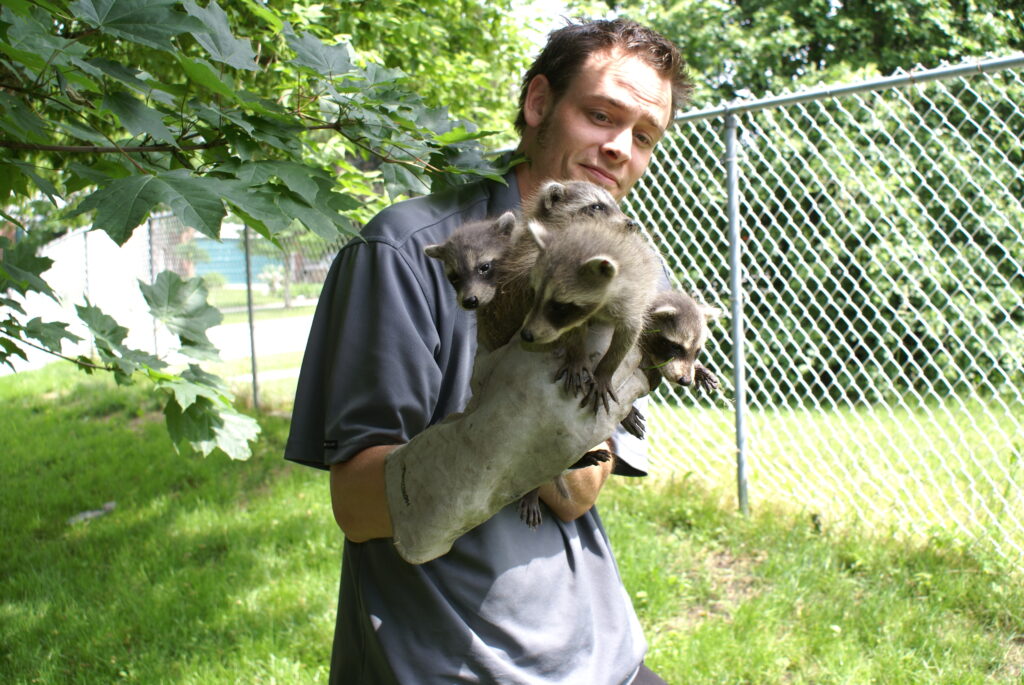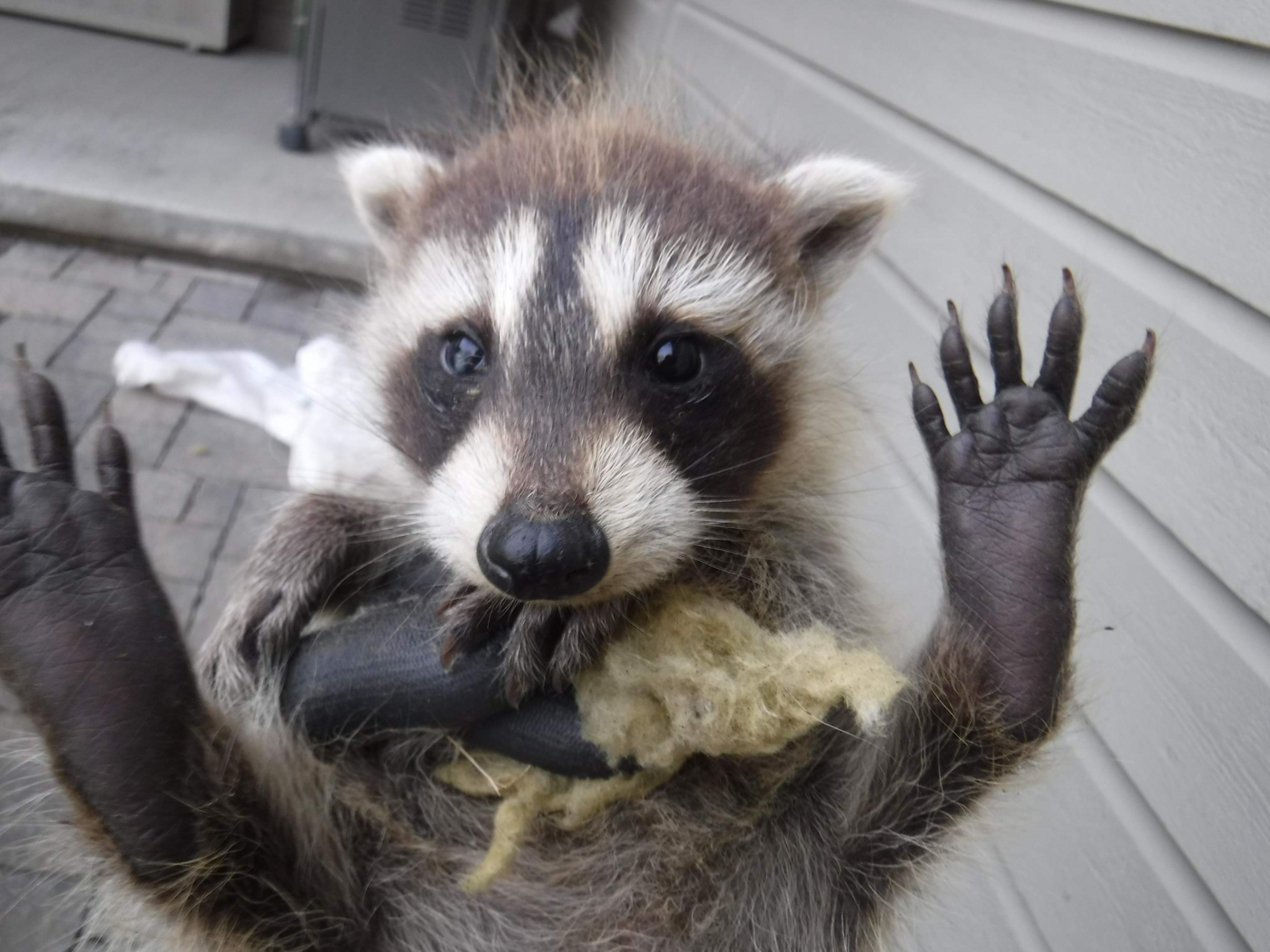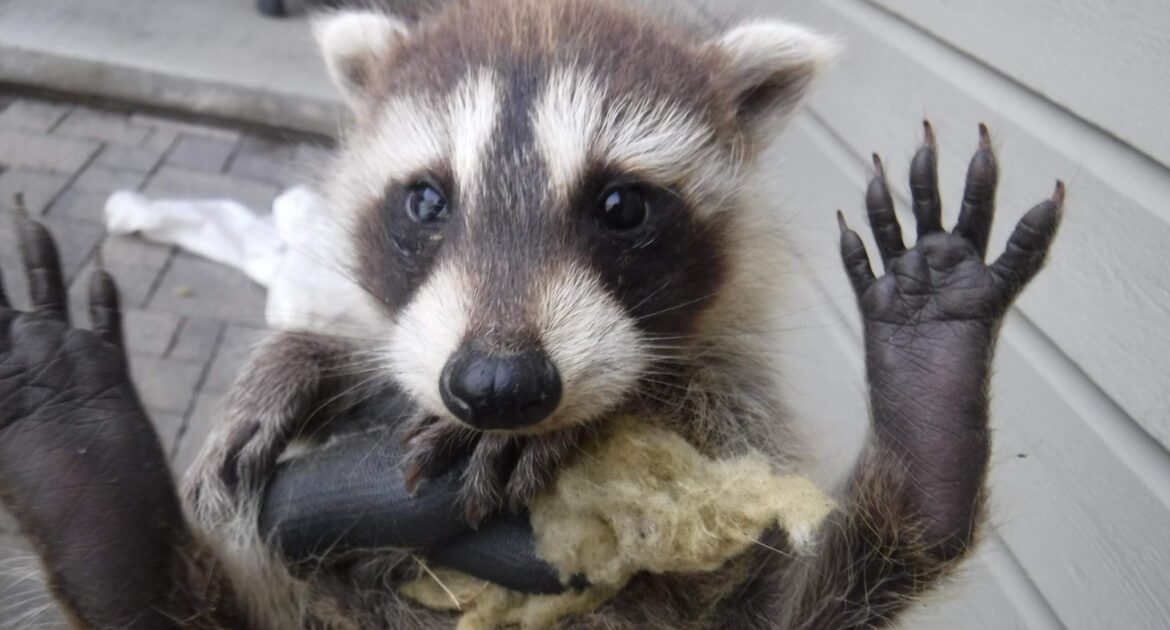Raccoons are cute and furry, but they aren’t good pets like cats and dogs. While you may have seen one of many videos online showing a raccoon interacting with a human in a very petlike manner, creatures living outdoors are wild and should be treated as such. But can they be domesticated? Can you have a pet raccoon in Okanagan? Unfortunately not. Here’s why.
What Is Domestication?
While some people think that a domesticated animal is simply one that won’t bite a human or attempt to flee, the term is actually much more restrictive than this. The process of domestication requires selective breeding over a period of time such that an animal or plant becomes significantly altered from its original state.
While most organisms can be genetically modified by humans, only a select few are good candidates for keeping as pets or agricultural animals. Wolves, for example, were ideal candidates because they ate similar diets to our own, hosted relatively few parasites and interacted willingly with people. At first, they simply remained close to humans, hoping to receive bits of food. Over time, this kind of “mutualism” became something greater when humans began to deliberately breed animals for desirable traits.
Over somewhere between 14,000 and 40,000 years, humans guided wolf evolution until the resulting creature was virtually unrecognizable from its original form. Over this lengthy stretch of time, people were able to breed for a suite of characteristics, including friendliness, deference to humans, communication and cute looks. While it was once thought that friendliness was the only trait people specifically sought out, we now understand that the domestication of dogs was far more comprehensive.

Why Raccoons Are Different
Unless you have several thousand years with which to selectively breed raccoons, you are unlikely to find a raccoon anywhere in the world that rivals a dog or cat as a pet. There is a good reason for this. Wolves were well suited to develop into pets. Raccoons weren’t.
Raccoons live their lives apart from people. While they socialize with each other, they don’t have complex pack hierarchies that make them suited to learning human social behaviour. As such, breeding them deliberately would be unrewarding at best.
Even if you were to find an extremely young raccoon pup in the wild and raise it as your own, your new pet would cause innumerable headaches. You would likely suffer unpredictable biting, escape attempts and damage to your home. As all masked critters are highly intelligent, simply keeping them in a home can be next to impossible. Raccoons have been known to find their way into forbidden areas, chew and scratch through hard surfaces and even escape secure pet containers.
But what about all of those youtube videos? Because videos only show a few minutes of interaction at most, they don’t show the full picture of what it’s like to handle wild animals. Most YouTubers don’t upload mundane videos of animals ignoring them or unsettling ones of their trash bins being emptied onto kitchen floors. Consider this the next time you look for cute animal videos. Enjoy watching them, but remember that they can give unrealistic impressions about the nature of owning wildlife.
A final note to consider is that many wild mammals transmit disease, so touching a wild creature is never recommended. So, are raccoons dangerous? As long as you don’t touch them or threaten them, they aren’t likely to cause you any harm, though they can scrap with unwary pets.
If you have discovered indisputable evidence of one or more raccoons in your home, the best course of action is to contact a humane wildlife removal professional as soon as possible. At Skedaddle Humane Wildlife Control, we efficiently remove animals without harming them. For more information, call today.






